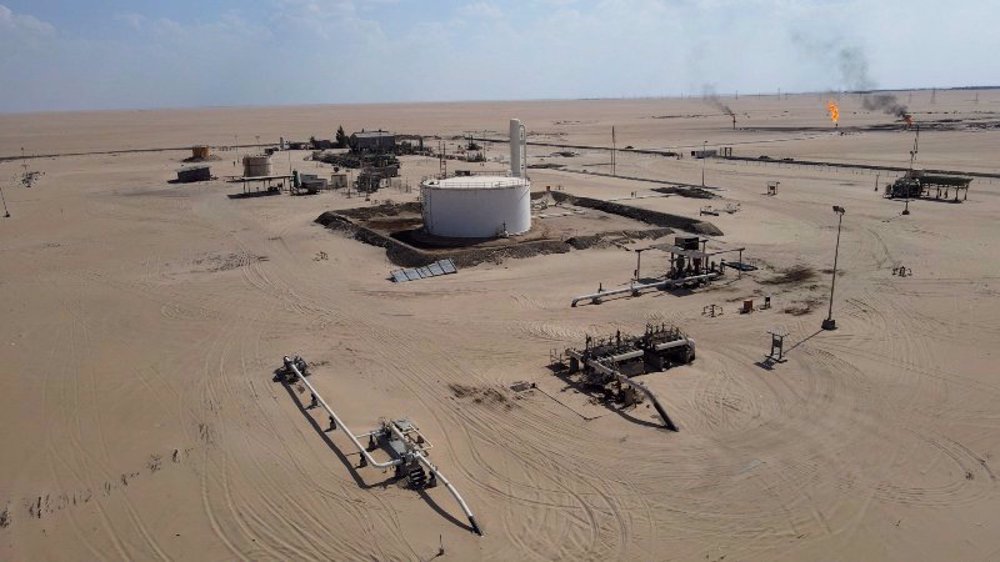Sarkozy charged with ‘criminal conspiracy’ over Libya bribes
Former French president Nicolas Sarkozy has been indicted for accepting cash funds for his 2007 election campaign from longtime Libyan ruler Muammar Qaddafi, who was toppled in 2011 after a Western military intervention, with Sarkozy being the driving force behind the move that led to his downfall.
French prosecutors announced on Friday that the latest criminal charges against Sarkozy came after he was indicted Monday for “membership in a criminal conspiracy” following more than 40 hours of questioning over four days.
The right-wing ex-president had already been charged in 2018 for “accepting bribes, benefiting from embezzled public funds and illegal campaign financing.”
Prosecutors believe that Sarkozy and his associates collected tens of millions of euros from the despotic Libyan regime to help finance his election effort.
The 65-year-old Sarkozy has been under pressure since 2012, when investigative website Mediapart published a document showing that Qaddafi agreed to give him up to 50 million euros ($59 million).
Judges are also probing claims by a French-Lebanese businessman Ziad Takieddine, who said he delivered suitcases carrying a total of five million euros from the Libyan dictator to Sarkozy’s chief of staff in 2006 and 2007.
During their time in power, Sarkozy and Qaddafi enjoyed surprisingly cordial ties, with the French president allowing the Libyan strongman pitch his Bedouin tent opposite the Elysee Palace on a state visit to France just months after his election.
However, four years later -- in 2011 -- Sarkozy joined the West-led military campaign that carpet-bombed Libyan capital of Tripoli and other key installations to force Gaddafi’s downfall, leaving oil-rich country in total disarray – a situation that still persists today.
Sarkozy, a trained lawyer, has fought the claims of Libya cash by claiming presidential immunity, while arguing that there is no legal basis in France for prosecuting someone for misusing funds from a foreign country.
However, after seven years of investigative work resulting in witness statements from Libyan officials, members of Qaddafi’s secret service and from middlemen, prosecutors believe they can prove that Sarkozy’s campaign was indeed financed by the late Libyan ruler.
The French president from 2007 to 2012, Sarkozy has denied any wrongdoing, claiming on his Facebook page Friday that his “innocence has been tarnished” by the charges, without “even the slightest proof.”
“I answered every question I was asked without ever being put in difficulty,” he further wrote, referring to the recent grilling by prosecutors. “I know that justice will triumph in the end.”
Meanwhile, Sarkozy’s former ministers Claude Gueant and Eric Woerth have also been charged in the case, which is not the only legal trouble for the former president.
Moreover, Sarkozy has also faced a list of legal issues since leaving office, being charged in two other cases, including one relating to forged invoices orchestrated by executives of the Bygmalion public relations firm to mask overspending on his failed 2012 re-election campaign.
In that case, he is accused of using fraudulent invoices to spend nearly double the legal limit of 22.5 million euros and risks up to a year in jail if convicted during a trial set for March.
In a third case, Sarkozy faces charges of attempting to obtain classified information from a judge on an inquiry into claims that he accepted illicit payments from L’Oreal heiress Liliane Bettencourt for his 2007 presidential campaign.
In exchange, Sarkozy allegedly offered the now-retired judge, Gilbert Azibert, a cozy job in Monaco.
This is while Sarkozy has long accused the French judiciary of hounding him, and declared in 2018 that for him “politics is finished.”
Despite his legal troubles, however, he still reportedly enjoys a surge in popularity and strong sales for his latest memoirs, “The Time of Storms,” which recounts the first two years of his presidency.
2 more Israeli forces killed in N Gaza: Reports
Iran relies on natural gas for nearly 90% of its power production: Expert
US embassy in Beirut blocks Iraq-Lebanon humanitarian air bridge
VIDEO | UK's Starmer targets journalists
Israel plans to displace Palestinians in occupied West Bank: Hamas
Iranian airlines ramp up Istanbul route flights after EU sanctions
British protesters slam UK’s complicity in Gaza genocide on Balfour day
US surgeon haunted by Gaza children with ‘single gunshot wounds to head’















 This makes it easy to access the Press TV website
This makes it easy to access the Press TV website